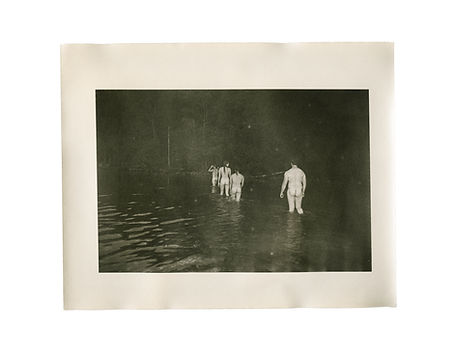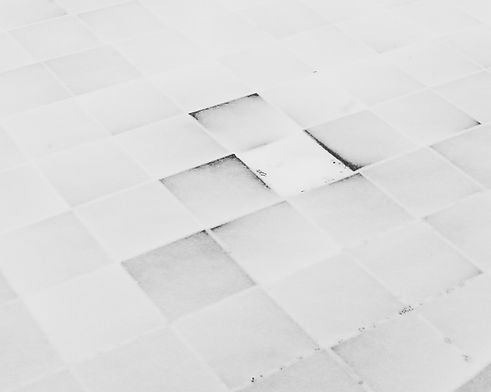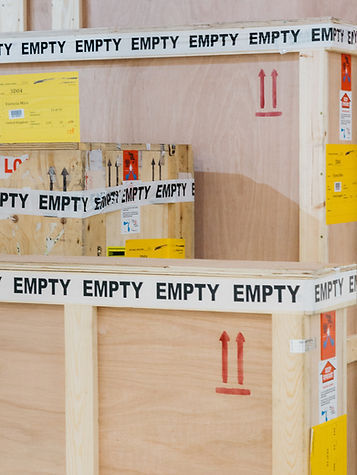
Dedicated to my friend, MICHAEL SIELER
I lost a friend this month. One who was always energetic, wanted to make others laugh and a creative soul. I remember Sieler showing me a book he was working on, a lengthy enough story line to where he created a whole character map. He explained to me who each one was and how they were related to each other and the plot. He had this silly laugh, that I can still hear in my head, every time he heard something funny; a lot of the time he was laughing at something that he said. Sieler showed me a lot of video games that I honestly didn't quite understand but it was very exciting watching him play, usually with others who understood the game more than I did. Michael Sieler was a very deep thinker, always analyzed things to the extreme; mostly things about life and death which felt scary for me to think about. I will write more about you, Sieler, because you make me think about things in a different way, you make me laugh about things I wouldn't normally laugh at and you will always be on my mind. I dedicate this to you.
ISSUE NO. 3: HIGH SEAS
January 2021
This issue of Pearl Press features work from:
Anne Hollowday
Sagar Das
Melissa Efrus
Abbey Little
Ryan Helfant
Logan Simons
Sara J. Winston
Michaella Twersky
Cobi Timmermans
Kara Birnbaum
Ryan Frigillana
Lo K. Clayton
Mary Bergman
Daniel Terna
Cover image: Logan Simons
Curated by: Delilah Twersky
Download the PDF below.

GLAD: Anne Hollowday

TIME: Anne Hollowday

THE GOOD OLD DAYS: Anne Hollowday
DAS OCEAN
In this year, I lost
the taste of spice
the satisfaction of my sensuality
the sense of gender. Pieces of me decayed
my tongue, my sex. I dragged myself out of the water named that body Sagar so no ocean could devour me anymore.
Sagar Das

Willoughby: Melissa Efrus
ON HUMAN DISASTER AND NORTH MANISTIQUE
Earlier in the day the fish were alive and in Michigan, and so were we. I watched you pull them from the lake, throwing them callously into a red bucket. Nearby, there were scores of blueberry bushes scorched from the sun and raspberries growing wild up the narrow dirt path. I put them in a basket, pulled mint, and returned with your family to their cottage. There are rumors of making pie, or even jam.
In the kitchen, bowls are conjured from cupboards, knives are produced out of drawers. I tie an apron around my waist. I have never prepared a fish before, but I watched videos in anticipation of the event from my bed in Brooklyn. I studied how to gut, then cut them. The videos did not prepare me for the slime of the Pike, how it would slip from my fingers as I knifed along its spine.
I hold the fish in a dish towel flush against the counter and, careful not to sever the backbone, slice it into two small fillets. I dispose of the heads in a bucket that will be dealt with later. Your cat eyes it, finally interested in what the humans are doing. There are assignments: you dredge, I fry, your father supervises. Hot oil splashes my arm as I lay another piece into the skillet. Everyone has a beer. It is not unlike a Rockwell painting. When we open our bags in the city, it will smell like this dinner.
Before we arrived on Lake Manistique, we waited for hours on the tarmac in New York. Our plane was delayed because of a surprise storm in the Midwest. You received a text from your employer, the daughter of the elderly woman you are a live-in caretaker for, that notified you that you are fired (effective almost immediately.) She planned to hire a new financially vulnerable person, someone she could pay less or not at all. You would no longer have a room or an income and we were about to spend a week without any internet connection. There was not much that could be done from the tarmac. The storm that was delaying our plane had finally let up, we’d already bought the tickets–– we were going.
The first few days, we had seen the inside of the canoe, a million ticks (you swear they were never this bad before,) and fish brushing against our thighs as we stood in the clear, cool lake. It was unnaturally warm here, according to recent memory. In a hammock, you brought out a few guest books dating back at least fifty years with visitors and temperatures, who caught what kind of fish and where. When you were younger, you drew pictures of your cat sleeping in the margins and noted which of your school friends had come out to spend time with you. We saw that there are notably less trout, if any, and increasingly hot weather. The lake water is finally comfortable, your father notes.
We went to the wildlife refuge, where I saw a Great Blue Heron flying broadly over the wetlands. Wasps were making a large nest in the damp wooden dock, a note was taped up nearby asking guests to stay away from the area. In the future, the state of Michigan does not know how it will respond to rising water levels, their 2013 Habitat Management Plan notes that officials should look into the situation more.
On our last day, we drive with your parents to the Great Lakes Shipwreck museum on Lake Superior. Inside the museum, you pay a fee to view the small room. People with cameras are reminded not to take flash photos. In the room, there are detailed accounts of freighter and passenger ships that were unable to survive storms. These incidents occur because unlike many waters, the Great Lakes have very few natural harbors where a ship may seek refuge during a storm. On Lake Superior alone, there are an estimated 350 shipwrecks, with over 10,000 victims. The Great Lakes are so cold, that the bodies of those victims stay at the bottom of the lake because little bacteria grows in the water. In glass cases, we see that divers have recovered artifacts, like little glass bottles and a bell from a newly discovered wreck.
When I return to my apartment, I will find forums dedicated to the wrecks. People suspect that with warming waters, the victims of the shipwrecks in Lake Superior will begin to rise to the surface. It’s hard to guess when it will start happening. In the meantime, you start looking for work and take gigs from friends as you find them. Before we leave the museum, we walk through the gift shop where you are able to commemorate your visit to the site of these well-documented disasters with t-shirts and tree ornaments. It is lucky this is here, I think. Some disasters don’t even get a gift shop.
Abbey Little

Untitled: Ryan Helfant

Untitled: Melissa Efrus

A floater: Logan Simons

Untitled: Ryan Helfant
Untitled: Ryan Helfant

ef·fi·ca·cious: Sara J. Winston


Willoughy (left), Corona (right): Melissa Efrus
I CARRIED MYSELF
Have you ever thought about how solid ground
is just the top of deep sea mountains
barely breaching from the waves.
I’ve thought it every day for the last nine months
gestated and evolved it
and under the final hours of a Scorpio sky
sucked in as much air as my lungs could hold and was pushed into the whirlpool forming at my feet.
I swam hard at first
but quickly tired and turned to float.
My eyelids felt heavy, my brow softened,
while projections flickered on those translucent shades.
Faded memories of a future now passed.
I thought I saw you on a small boat when I squinted
but it was a stranger with avoidant eyes.
I gulped another lungful before diving in,
like playing mermaid as a child at the public pool,
giggling, eyes stinging with chlorine.
A rushing bellow in my ears as my head broke through the surface.
Floating on my back,
looking up at the pale grey sky crowned by mountain tops
and I felt so small it hurt.
But, in this way, I carried myself across the sea.
Floating in my padded void
and swimming hard against howling gales and tall waves.
Michaella Twersky

Ebb: Ryan Helfant
GOLDEN
You are gold
Sweet child of mine
Sunshine upon my garden
Where I fall into the earth and rise
Like a wildflower
I see the sun spilling down your face
I should have asked you what you saw
When I held your eyes with mine
And honey dripped down from the sun
Into my brown eyes
I see the brilliant things you will do
Unfolding before us
I hope you believe in your future like I do
I know just how good you could be
Even if you don’t see it for yourself
I know this life is sometimes cruel
So, when the waves rise above the mountains
And you can no longer see the stars and Jupiter
Come and put your weary head on my shoulder
I promise you a bed of hay in my heart
To rest in when life gets too much
And you need shelter from the winds that beat the cliffs
I remember the last time I saw you
I wish I’d said “I love you”
So please, sit with me one last time
Down by the rocks where the ocean graces our shores
Let your soul float with the foam of the sea
And I’ll tell you again about my paradise
Cobi Timmermans

NEW YEAR'S DAY
Side by side, we sat upon the dock and saw ourselves below; A reflection of the year gone by. From our walk, we’d gathered stones,
An impressive pile between us.
One for you and one for me.
One for us and one for them.
“This one’s for my mother’s yell.”
“This one’s for the job I hate.”
One by one, the stones rippled our reflections like a ritual. Each stone heavy with the words we’d said, sinking to the sand. Like every New Year’s Day,
We washed away our sins,
Forgot our fears,
And drowned our doubts.
Cobi Timmermans
Madeleine: Kara Birnbaum


Untitled from The Weight of Slumber Series: Ryan Frigillana

In the Mist: Lo K. Clayton
LOST AT SEA
In the Cuttyhunk graveyard, the smallest and strangest town in Massachusetts, there are a handful of headstones that read lost at sea . One reads Piping Plover , but that’s another story. I can’t imagine why. Maybe the woman who rests there loved piping plovers, small birds tapping out messages along the shoreline in sandy morse code. There are more stones than bodies in the ground. The waves will take us all one day.
And then I was. Lost at sea, that is. Slipped away, people will say. As I guess that’s what it was like. I slipped away with the tide. One minute, you’re there, the next, well, you’re gone. Don’t ask me where you end up. For me it was this coffee shop. I can’t imagine it’s the same for everybody. Some people have got to just disappear, gotta become part of the natural world. They get eaten up, bit by bit, by the little tiny fish. The same ones that swim around your ankles when you wade in, in the early mornings at mid tide, when the water is warm. The birds come first, for the eyes. They always do.
I saw a dead seal on the beach the other day, down at the end of the steps leading up to somebody’s house. They’re trying to rebuild the bluff, trying to truck in sand and strengthen their seawalls. It’ll never work, I want to tell them. I want to scream it. But I was lost at sea and they wouldn’t hear me. Christ, anybody who thinks they hear me just ends up chalking it up to the sound of the wind, whistling. But that’s me out there, whistling, singing, screaming. Trying to be heard, one last time, before I slip away again.
Anyway, this dead seal, its eyes were gone. Always the first to go, I’m telling you. If it were me, I would have gone after the teeth. Make a nice little necklace or something. Then people would hear me coming. Jingling. Can you imagine that? You hear a little sound of something jangling--keys, or seashells, or even just all the fucking sand in your shoes--and you think, that’s just the wind . But it’s me. It’s been me all along.
I thought about calling somebody, there’s this guy who checks out the dead seals. He’d want to know. I’ve seen him come into the coffee shop, hair wild, glasses covered in salt spray, the legs of his pants soaking wet. He sits there, rubbing his bare feet, trying to warm up before getting another call. It’s not like he can really do anything most of the time. He can move the animal and try to figure out why it died. I heard somebody say there were a hundred cold-stunned sea turtles that died on the Cape earlier this week when the temps dove into the teens overnight. It was all over the news, they said. I think I showed up on page B-11. In the Lifestyles section, death notices right under the obituaries. Would you believe that? Somebody had the gall to put the obits in Lifestyles .
Nobody comes for the seal. I went to check on it the other day, half its face was eaten off, by something or someone. A carrion bird, a coyote. I don’t know. I try not to think about it. Cuts too close to the bone, you know?
I know that all that wrack--seaweed; shell fragments and tiny little crabs, about the size of your thumbnail; plastic trash and toys, sun-bleached and baptized by the saltwater; seagull’s feathers and seagull’s bones; and now this seal, with his desiccated face and snout like a faithful dog, all too similar--it’s a little ecosystem, a whole complete world until the tide comes in. Think of it: a universe that exists for only six hours. And then everything slips away.
Mary Bergman

Crates, Art Basel Hong Kong: Daniel Terna

Crates, Art Basel Hong Kong: Daniel Terna
Thank you for reading.
For more updates check @pearl.press on Instagram.
Delilah Twersky
Pearl Press
©2021
